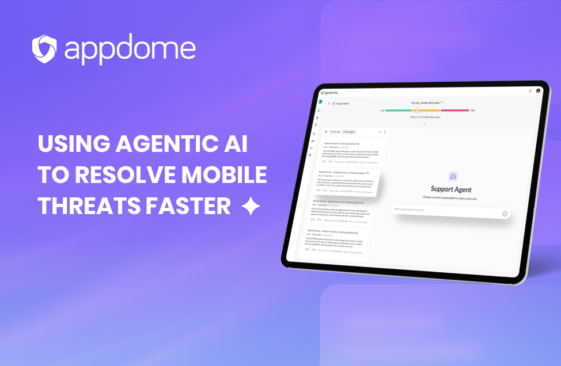NoxPlayer Emulator is one of the ‘go-to’ methods mobile game cheaters use to gain an unfair advantage in playing mobile games. App Players, like NoxPlayer, are emulators designed specifically for Android mobile games. Nox allow players to automate actions, beating out human players and undermining the overall experience of the mobile game for all players.
This blog covers the basics of how cheaters use App Players and emulators to cheat in mobile games and gives advice on how developers and game studios can stop cheaters from using emulators and restore fair play among all players of any mobile game.
What Are Emulators? What Are App Players?
Emulators are tools that allow a user to automate, model, and mimic an original or modified mobile game inside a virtualized Android environment. Emulators have a lot of legitimate uses, including standard mobile app development and testing. However, in mobile games, cheaters can also use emulators in order to impact the rate of play, extract data used in the game, and trick the game logic into awarding unfair advantages to the cheater. This is why emulators using to cheat in mobile games are known as App Players.
App Players are very powerful. They have the ability to read data from original and legitimate games, alter code dynamically, and interact with mobile games using automated programs that also run inside the emulator. Mobile app emulators can be run on almost any standard laptop or desktop computer. Similarly App Players can be run on almost any windows PC or Apple Mac.
Why NoxPlayer is Such a Popular Game Cheating Tool
Mobile game cheaters love App Players like Nox and MEmu and Emulators like Bluestacks, because they can be used to gain an unfair advantage over human players. Not only will app players and emulators allow the cheater to be unshackled from battery life and other mobile device constraints, but they also allow the cheater to play mobile games on more powerful laptop and desktop systems, armed with shortcuts and macros that automate and enhance their level of play unfairly. Emulators can be used to run or create modified games (i.e., called ‘mods’). In this way, emulators can be used to modify a mobile game’s values or memory, bypass or spoof in-app purchases, disable mobile advertisements, or create some other advantage against the game or against other players.
Here are a couple of screenshots from NoxPlayer Emulator, one of the most popular Android emulators used in mobile game cheating. Nox can be run as Root (ie: ‘superuser’ status) to gain an unfair advantage in games. Running the modified game on the Nox emulator exposes a cheater-friendly user interface that allows hackers to modify the game’s runtime while they are playing the game. The cheater can simply increase their scores by entering their desired value in the text field. I’m gonna go out on a limb and guess that the upper limit of this attribute is $10 million. The cheater assigned themselves $9,999,994 – just shy of the maximum.

The example above is showing a ‘pre-packaged’ game mod, which is distributed on alternative app stores like Up2Down. Whoever uses this game mod doesn’t even need programming skills in order to hack the game. It’s not even necessary to decompile the app in this case.
Now this particular mod requires Root access to run. The reason for that due to the nature of this particular mod, in that it changes key values and attributes in the Tiny Miner game which are stored in memory, which requires root access to change. So to use this game mod to cheat, you need to run the mod on a rooted device. Instead of rooting their own Android device, the cheater can simply use the built-in Rooting feature in the Nox emulator (as the screenshot below shows).

Why Game Developers Should Block Emulators and App Players
Here are the top 5 reasons mobile game developers and game studios should protect mobile applications and mobile games from running on emulators, app players and other virtualized environments.
- Create and Maintain Fair Play Among Mobile Game Players – Player trust and game integrity are a huge part of building a successful mobile game. And many games rely on in-app purchases to make the economics work. As the number of cheaters increases, honest players become frustrated and eventually churn. This places a downward spiral on game revenue as loyal, paying customers are replaced with players who never intend to pay for anything in the first place.
- Block Speed-Clickers and Auto-Macros – Speed-clicker and auto-macros accelerate the click-speed or movements of a character, tool, or weapon in a mobile game. For instance, mobile game cheaters can use macros, simple scripts that automate keystrokes and other programs to create an unfair advantage for themselves (e.g. giving the cheater the ability to run or fire a gun used in a mobile game 1,000x faster than a human opponent ).
- Stop Click-fraud – The same techniques can be used to accelerate gameplay and gain unfair advantage vis a vis human players can be used to carry out mobile click-fraud inside mobile games. Mobile click fraud can be used to steal resources used in a game, as well as accumulate or spend resources in a game at different rates than human players, in some cases bypassing in-app purchases.
- Prevent ROM-Hacking and memory editing – ROM hacking and memory editing are two methods mobile game cheaters bypass or disable in-app purchases (and play mobile games for free) or bypass in-app purchases to advance through the mobile game (i.e., gain game advantages) for free.
- Prevent Non-Human Players, Running in Virtualized Environments – Emulators are also often combined with Virtual Spaces tools such as virtualXposed or Parallel Spaces, which allow hackers to run multiple instances or accounts of the same game at once. This can be used, for example, to create teams of machines (not real players) running an army of click-bots, all within a virtualized environment designed to overwhelm real mobile gamers.
Protecting Mobile Games Against NoxPlayer, MEmu App Player, BlueStacks Emulator and Others
Blocking emulators in mobile apps and blocking app players for mobile game cheating is all about adding runtime application security protection (RASP) to your Android and iOS mobile game app. Mobile game developers and studios can use Appdome to prevent and block emulators and app players from being used with their apps, without adding an SDK or writing additional code inside their apps.
If you want to learn more about preventing mobile game cheating, check out the next blog on Mobile Game Modding Using Dynamic Code Injection & Memory Editing. You can also learn how Appdome’s no-code technology is used by mobile game developers and studios to prevent all kinds of mobile game cheating and block game cheating tools.
Give Appdome a try today. Get started at https://fusion.appdome.com/signup






